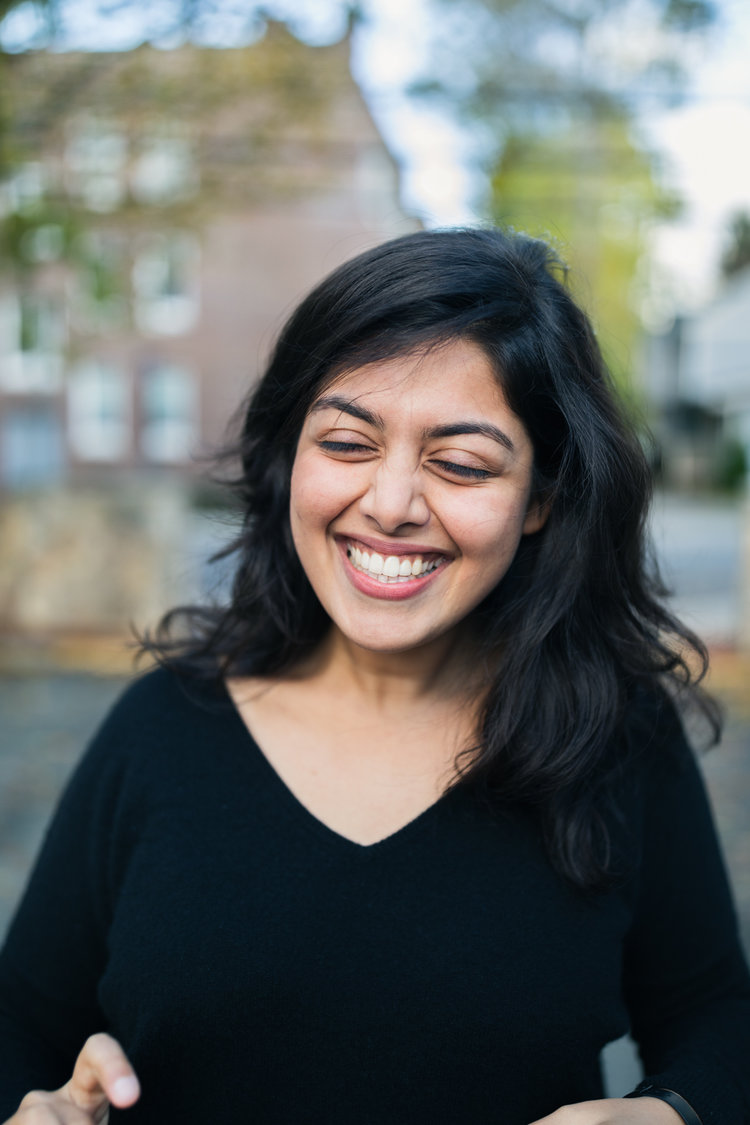
20 Jan In Conversation with: Vasundhara Gupta
The ‘In Conversation with’ series brings to you the stories of musicians and their musical journeys. Today’s piece features Vasundhara Gupta.
EARLY YEARS
Known to her audience by her artist moniker VASU, Vasundhara Gupta exemplifies the notion of an all-rounded musician. A vocalist, composer, producer, and sound designer, Vasundhara’s sonic and musical journey began in India’s cultural hub, Kolkata, attending weekly kathak and singing classes. Her interaction with kathak was fleeting, but in singing she found a home. An ardent admirer of Indian Classical music, her early associations with the art form has shaped the core of her musical sensibilities. Speaking about her love for the same, she says, “Indian classical music is very spiritual and I feel easily connected to it. It is very easy for me to hear it, and be transported immediately to a place that’s not very easy to go to. It is sort of like a meditation.”
Surrounded by a rich spread of music in her household from early on, her exposure to music included a vast and diverse palette of Indian Classical, French music, western classical, rock and roll, orchestral music, jazz, and popular music from all corners of the world. “Through them, I learned the art of appreciating all sorts of music and I learned to like being around music. My ears are very sensitive and I catch fine things quickly which I feel is because I was exposed to all of it at a young age. The intricacies of ABBA harmonies, the chord progressions of western classical music, following the cadences and the phrasing… all of these things built my love for all kinds of music and I enjoy any genre except for metal!”
BERKLEE AND BEYOND
A college application to the Berklee College of Music that started as a joke, saw her globe trotting across the world map from Boston, to Valencia, ultimately walking out of the college in 2017 with an undergraduate degree majoring in Contemporary Writing and Production, and Music Production, Technology, and Innovation. The years post Berklee, proved to be some of the most challenging. Reflecting on this period, she says, “I didn’t have a clear idea of what I wanted to do. I knew I wanted to pursue this field and keep pursuing music, and audio, in some way. I started releasing my own songs as an artist and I found a love for electronic music combined with Hindustani classical. Everybody has a unique creativity and this came out in the shape of mine.”
“Side by side, I was freelancing in the world of music and audio. I dabbled in audio post-production, in-house studio mixing work, UX sound design, composing for trailers and films, and sample development. I was sort of everywhere, and saying yes to every opportunity, which eventually brought me to New York.” Her portfolio of work as a freelancer in the world of music and audio boasts of a diverse range of companies leading in their fields such Facebook, Revlon, UZU, Valentino, and The Zebra. “It was very challenging, and there was a lot of struggle- struggle to pay the bills, struggles thinking about what that one thing was that I wanted to pursue. At the same time, I just kept on doing things and kept on showing up every day.”
BREAKING BOUNDARIES
The onset of the COVID-19 pandemic in March 2020, halted her adventures in the chaotic city of New York, and Vasundhara found herself back in her hometown, Kolkata, after seven long years. With ample time on her hands, the seeds of her second self-produced EP Parwaaz began to grow into a colourful vision. “One of the highlights of COVID year for me is my EP because it made me stop, pause, look around, breathe and realise that while my work is going on, that’s not my entire life because I also love producing music. After the first EP, it had been a while because I got so busy figuring out my career, and needing to earn off this that I lost my music along the way somewhere. I feel like I have found a lot of my sound in this EP, and it is the closest I have been to who I am, and my sound. None of the songs in the EP have a structure– it’s free flowing. And that was my way of announcing to the world that this is me, this is what I like to do, and this is what I’m going to do.”
In a world where creators are forced to chase numbers, and figures, often at the cost of the honesty of their creative expression, Vasundhara’s fierce determination to preserve her creative integrity, and uphold the authenticity of her expression is refreshing and inspiring. “In this whole musical journey, I have had the tremendous support of my family and friends, but I have also not had the support of many people who have questioned what I am doing, and asked if I am going to do something on the side. To be able to block them out, I realised that at some point you have to stop thinking and worrying about what other people are going to think. I realised that if I don’t believe in what I am doing, then it’s not something I want for myself. It’s the same with this EP. I released it without thinking about what the response would be. I knew it’s not a commercial EP, and it wouldn’t be for everybody, but I still had to do it.”
EXPLORING NEW HORIZONS
 While exploring her creativity, and pushing the limits of her artistry, Vasundhara came on board as the music composer for the VR-short film ‘Child of Empire,’ which saw her collaborating with her dear friend, Amira Gill, for the film’s title track to compose a nazm, ‘Subh-e-Azadi’ by legendary Pakistani poet and activist Faiz Ahmed Faiz. Providing a glimpse into the creation process for the project, she says, “I did so much research into this project to understand that time period, and have the bigger picture in my head when composing. I realised that my job is to serve the storytelling, and serve the art which is something Annette said that has stuck with me. It is now my rule number one for any project. The music and the score is there to elevate the experience so I was questioning myself a lot: what is my role here? Or should I even play a role, and is silence the best score? For the score, I went to a lot of traditional instruments like the Sarangi, and the Rudraveena, because I wanted to go back to the roots and also add my own flavour so there is some ambient sound design, and electronic beats.”
While exploring her creativity, and pushing the limits of her artistry, Vasundhara came on board as the music composer for the VR-short film ‘Child of Empire,’ which saw her collaborating with her dear friend, Amira Gill, for the film’s title track to compose a nazm, ‘Subh-e-Azadi’ by legendary Pakistani poet and activist Faiz Ahmed Faiz. Providing a glimpse into the creation process for the project, she says, “I did so much research into this project to understand that time period, and have the bigger picture in my head when composing. I realised that my job is to serve the storytelling, and serve the art which is something Annette said that has stuck with me. It is now my rule number one for any project. The music and the score is there to elevate the experience so I was questioning myself a lot: what is my role here? Or should I even play a role, and is silence the best score? For the score, I went to a lot of traditional instruments like the Sarangi, and the Rudraveena, because I wanted to go back to the roots and also add my own flavour so there is some ambient sound design, and electronic beats.”
Composing poetry by the illustrious Faiz Ahmed Faiz is no small feat. “Amira and I were so scared, and nervous, and we wondered to ourselves ‘what have we taken on!’ The nazm Subh-E-Azadi is the only poem he has written on the subject of the partition, and there has never been a musical composition to this poem. It’s such a special and deep piece of work that you can’t treat it casually. You have to treat it with that respect and sensitivity so we spent a lot of time prior to composing the piece, understanding what the poem means, where he wrote it from, talking to people about it, reading hundreds of articles about it, and getting the pronunciation right. We spoke to his daughter, Saleema ji, to try and understand what was happening in Lahore, Pakistan, at the time, and she gave us some amazing insights. Saleema ji could see during the call that we were afraid, and she simplified it for us by saying ‘don’t be. You are creative people, and your creativity will come out in the song so why are you taking so much pressure?’ This was one of those projects that means something. It has an impact on people and it’s talking about an important subject. The film is going to be shown to partition survivors so it’s very special.”
With ‘Child of Empire’ having its world premiere at the prestigious Sundance Film Festival in 2022, Vasundhara has an exciting year ahead of her. 2022 will also see her collaborative project with Faraz Ehsan (8-Bit Culprit) – Sataarah– come to life, with their first track and music video ready for release; and a new opportunity to work as a UX sound designer for Amazon, in Seattle, USA. To stay updated on her latest adventures, you can follow her on Instagram, Spotify, and Youtube.
Written and edited by Senjuti Maitra



No Comments